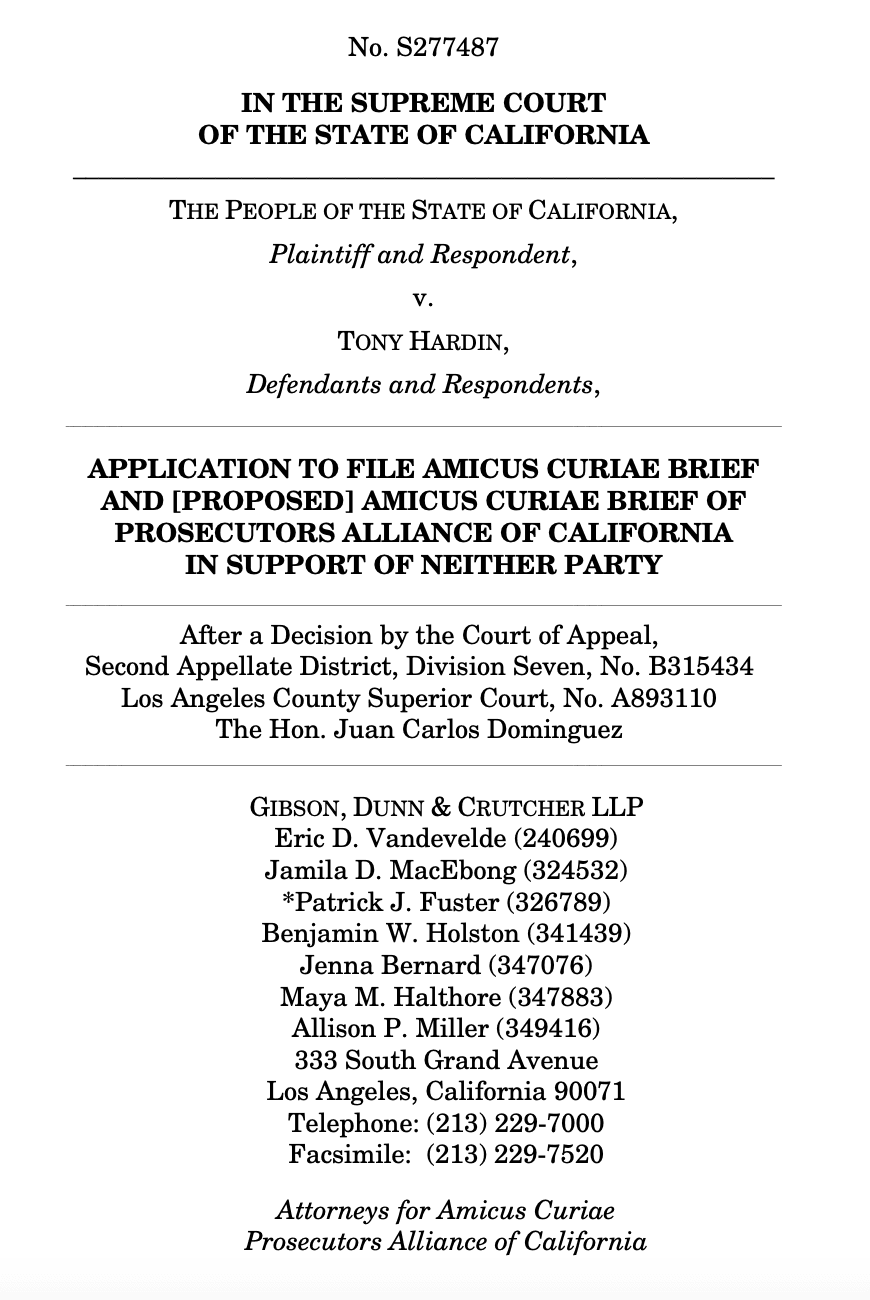
Summary of Argument
The Prosecutors Alliance of California is an organization of prosecutors who take seriously their responsibilities to victims, their communities at large, and the defendants whose rights they are bound to respect under the rule of law. We file this brief principally to discuss the proper role of prosecutorial discretion within the youth offender parole system.The Legislature created a youth offender parole system centered on the “hallmark features of youth” and extended this prospect of parole to people who committed their offenses before the age of 26. (Pen. Code, § 3051, subds. (a)(1), (f )(1).) But the statute also shuts a select group of young adult offenders—those, like Mr. Hardin, who are already serving life without parole (LWOP) sentences—out of the youth offender parole system. (§ 3051, subd. (h).)The Court of Appeal held that this carveout violated the Equal Protection Clause as applied to Mr. Hardin, who was convicted of murder with a special circumstance of robbery more than three decades ago. Subdivision (h) treats young adult offenders convicted of special-circumstance murder differently from those convicted of first-degree murder. As the Court of Appeal observed, the overlap between these crimes is so great that prosecutors have discretion to charge a special circumstance for 95% of first-degree murders.
The key question on appeal is whether the Legislature could rationally use this charging decision between special- circumstance murder and first-degree murder as the sole determinant of eligibility for youth offender parole. In our view, this question should be answered in light of the typical considerations that both inform prosecutorial discretion and bear on a young adult offender’s culpability and capacity for rehabilitation. We also take this opportunity to identify racial, geographic, and temporal disparities in the youth offender parole system that the Attorney General’s position would perpetuate.Although we do not take a position on the ultimate disposition of this case, we do urge this Court to consider the varied (and sometimes unexpected) ways that prosecutorial discretion interacts with the youth offender parole system.